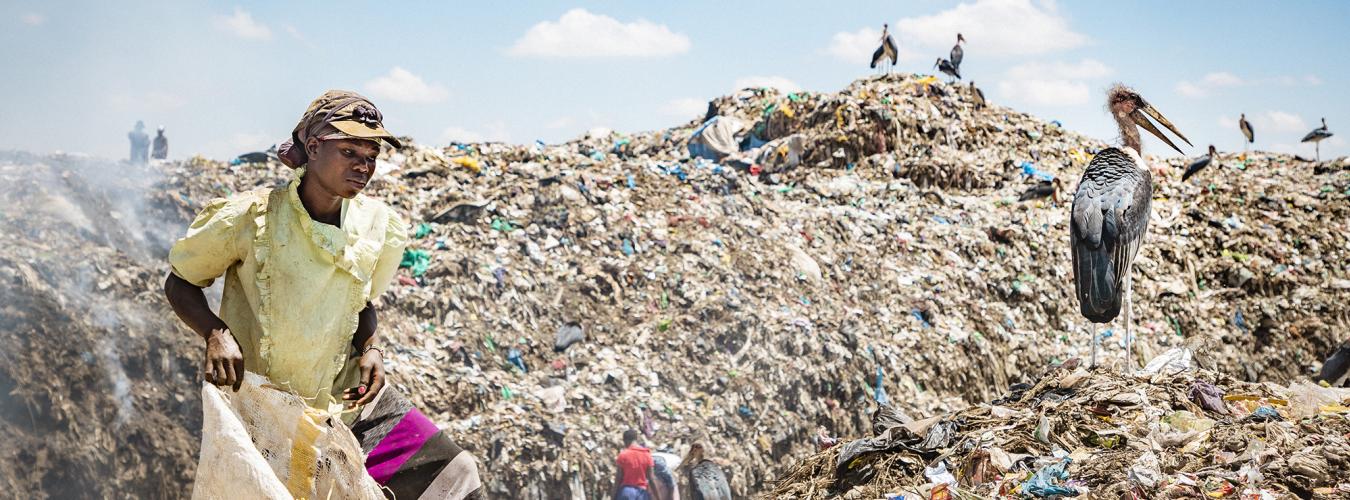
C3S: July 22 hottest day in recent history
July 22 was the hottest day on earth in recent history, according to the Copernicus ...

The world is marking the first International Day of Zero Waste which aims to bring these myriad impacts of waste to the world’s attention and encourage global action at all levels to reduce pollution and waste.
Established through a UN General Assembly resolution that followed other resolutions on waste, including the 2 March 2022 UN Environment Assembly’s commitment to advance a global agreement to end plastic pollution, the International Day of Zero Waste is jointly facilitated by the UN Environment Program (UNEP) and the UN Human Settlements Program (UN-Habitat).
The Day calls upon all stakeholders – including civil society, businesses, academia, local communities, women and youth – to engage in activities that raise awareness of zero-waste initiatives.
Humanity generates more than 2 billion tons of municipal solid waste annually, of which 45 percent is mismanaged. Without urgent action, municipal solid waste will double to almost 4 billion tons each year by 2050. Waste comes in all forms and sizes – including plastics, debris from mining and construction sites, electronics and food. It disproportionately impacts the poor, with up to 4 billion people lacking access to controlled disposal facilities.
“The waste crisis is undermining the Earth’s ability to sustain life in all its forms. Waste costs the global economy billions of dollars each year,” United Nations Secretary-General António Guterres said on the Day. “Humanity is treating our planet like a garbage dump. We are trashing our only home.…It’s time to fight back, and launch a war on waste on three fronts.”
“Waste management is critical to overcoming housing challenges, including how we manage our cities’ sanitation challenges and, indeed, the climate crisis,” UN-Habitat Executive Director Maimunah Mohd Sharif said. “It is central to improving the lives of people everywhere.”
In its resolution to establish the Day, the UN General Assembly underlined the potential of zero-waste initiatives and called upon all stakeholders to engage in “activities aimed at raising awareness of national, subnational, regional and local zero-waste initiatives and their contribution to achieving sustainable development”.
Promoting zero-waste initiatives can help advance all the goals and targets in the 2030 Agenda for Sustainable Development, including Sustainable Development Goal 11 on making cities and human settlements inclusive, safe, resilient and sustainable and Sustainable Development Goal 12 on ensuring sustainable consumption and production patterns.
“We need to act now,” UNEP Executive Director Inger Andersen said. “We have the technical expertise and the drive to innovate. We have the knowledge – both scientific and indigenous knowledge – to find solutions to the waste crisis.
“The first International Day of Zero Waste is a real opportunity to build on local, regional and national initiatives to foster environmentally sound waste management and to contribute to the Sustainable Development Goals,” she added.
To mark the International Day of Zero Waste, businesses, governments, non-profits and more are hosting events all over the world. These include community information sessions, e-waste and food collection drives, fashion shows, photo exhibitions and conferences.
UNEP, including through its One Planet Network and UN-Habitat will undertake campaigns and concerted outreach efforts in the build-up to observations of International Day of Zero Waste on 30 March every year to continue rallying support and action on the importance of zero waste.
July 22 was the hottest day on earth in recent history, according to the Copernicus ...
Google has engaged in partnership with DHL to utilize the DHL Express GoGreen Plus service ...
Mars has announced registering a record 8% greenhouse gas (GHG) emissions reduction against its 2015 ...


اترك تعليقا